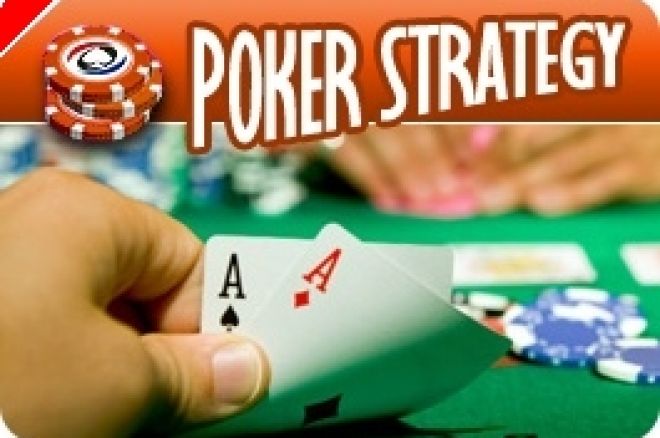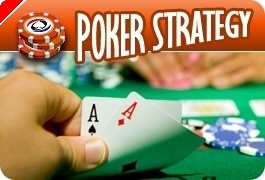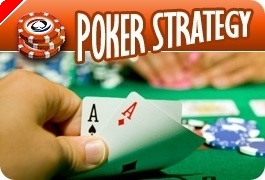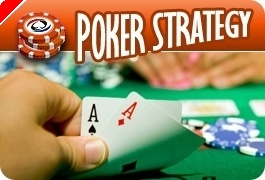Stud Poker Strategy: Poker Workout, Part 1 -- Away from the Table

I was exercising at home on my Nordic Track. I had just returned from Paris and had eaten too much during my vacation, so I was trying to burn off some of the excess calories I had eaten and lose a few pounds. At the rate I was going I'd lose the five or so pounds I'd gained in about 150 hours��. I guess that's where they came up with the expression "fat chance".
Anyway, as I was gliding away my girth I was thinking about poker. "Is there any way for a poker player to exercise his poker skills?" I wondered.
I came up with a few things that a stud player can do �� some away from the table and some at the table �� that could help him get his game in shape. Here is what I recommend. The first part will deal with how you can exercise away from the table. The second part will deal with how you can exercise while at the table.
Exercising Your Poker Skills Away from the Table
There are times when you just can't play poker. You're alone, or you're with non-poker players, or you're broke, or there's a blackout that night. Who knows? But this doesn't mean that you can't work on your game.
First of all, Wilson Software makes a wonderful product. Wilson's "Turbo 7-card Stud" (along with similar games for the other forms of poker) is a great learning tool that you can employ to improve your game and get yourself in shape for the real thing. If you have a laptop, it can be with you wherever you go.
It's useful in a few ways. First of all, you can set it up with computer opponents and just play hand after hand of poker. You can use a feature to zip through the play of all of the hands that you fold, allowing you to play over one hundred hands an hour. This is useful up to a point. At the very least, using the helpful feature that gives you pointers on your play (telling you the best move, according to the program you're using) helps you learn a rudimentary strategy. You can also learn discipline, as you easily fold hand after hand of substandard hands and then use the zip feature to avoid boredom.
More helpful, I've found, is the ability to test theories about your play on this computer. You can try playing more aggressively, or passively, or tightly, and see relatively soon how that affects your results. You can see how your regular style matches up against different computer-generated players, and see what adjustments, in general, might be helpful against your typical lineup. You can also adjust a player to fit a certain playing profile and then set it out against other players and see how it does. You can make small adjustments and see whether they increase or decrease your revenue over a lifetime of hands.
This has its limitations, of course. No matter how good the computer-generated players are, they aren't nearly as good as a really good live opponent. And after not too long they won't be as good as you become. So your sessions will give you misleadingly positive results. Also, as varied as the many computer-generated foes are, they are no substitute for the varied and inconsistent players you'll be up against in a casino. So though it can be a learning tool, it's not a substitute for the real thing.
Even if you don't have a computer or don't have this or other poker software, you can still enjoy some ersatz poker if you have a deck of cards. I have long been a practitioner of poker solitaire. I deal out hands of seven-card stud, thinking through the play of each hand as I play each hand in turn. I've considered many interesting hand situations in just this way �� helping me sharpen my critical thinking. I find that with very little practice and good concentration I can truly block out the images of the other hole cards as I decide how best to play my hand. It's not as good as playing a simulated game on the computer �� and there's no way to really make and keep track of bets. But on a flight or at the kitchen table, or even in the bathroom, it's an okay substitute.
Another poker exercise that I find helps my playing skills is "poker concentration". Do you remember that old TV game show "Concentration"? Contestants viewed a large board with many squares. One side of the square was blank. The other side would be revealed with a letter or image. After it was revealed it would be hidden again and the blank side would appear. Contestants had to remember which image was on the side of the square that had been exposed and then unexposed and match it with other identical images as they appeared.
Poker Concentration is played the same way. Set up eight cards face down �� all in a row. Turn over the first one. Turn it back down. Try to remember what it was. Say it out loud. Turn it over again and see if you remembered correctly. Move on to turning over two cards. Turn them over and then turn them back quickly. Say their names out loud and see how you did. Do it with three, and then four, etc. See if you can turn over all eight cards in a row and then say each of their names in order. You can also do this by taking a deck and then turn the top card face up and then stacking it face down on the table. See how many cards you can remember in order. If you find that it is too hard for you to remember the rank and suit try doing this exercise with just the rank. How many cards can you keep track of? Does it help you to put them in numerical order in your head as you are remembering them? I've found that I can recall about five or six cards with rank and suit, but that I can recall the rank of up to 35 cards if I put them in numeric order in my brain.
I've also found that reading poker books and articles is a useful way of honing my poker playing skills. Not all writers are created equal, of course. But for me, a heavy dose of David Sklansky, Mason Malmuth, Chip Reese, Roy Cooke, Mike Caro, and Bob Ciaffone, among others, always seems to help me think more carefully.
Finally, I recommend physical exercise. I've found a definite correlation between how much I'm in shape physically with how well focused I am mentally. I'm not sure what it is, but my thinking is clearer, my vision is better, and my brain just seems to work better in general when my body is in shape. So I recommend at least some exercise a few times a week to stay in shape physically.
Next Week: Poker Exercise At the Table








